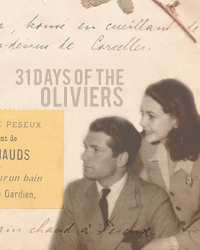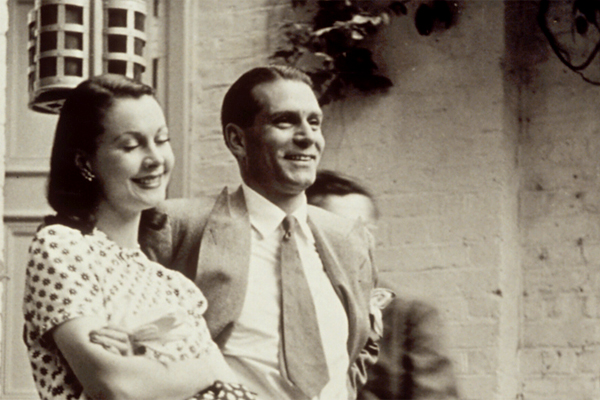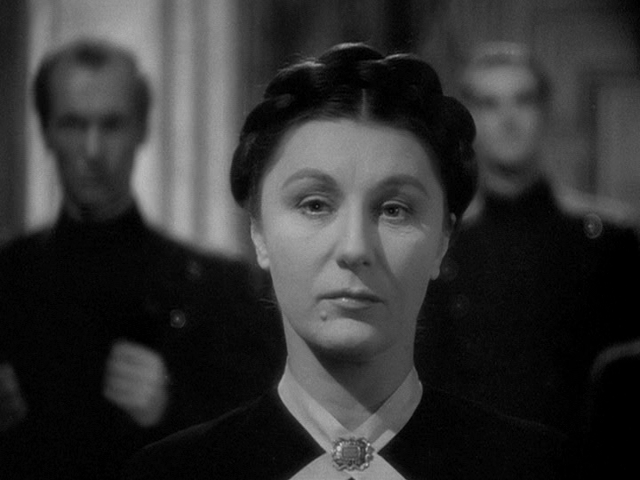 I have a bunch of magazine and newspaper articles left over from my dissertation research, so I’ve decided to do “31 Days of the Oliviers.” Each day I will post a new article or blog post, ending with Vivien Leigh’s birthday on November 5. These articles (most of which have Vivien as the main subject) span the years 1937-1967 and come from both American and British sources. I hope you enjoy reading them as much as I do!
I have a bunch of magazine and newspaper articles left over from my dissertation research, so I’ve decided to do “31 Days of the Oliviers.” Each day I will post a new article or blog post, ending with Vivien Leigh’s birthday on November 5. These articles (most of which have Vivien as the main subject) span the years 1937-1967 and come from both American and British sources. I hope you enjoy reading them as much as I do!
{Day 5} Vivien Leigh’s and Laurence Olivier’s romance was speculated in the press from the outset, but because of Selznick’s iron grip on his new discovery, news of just how involved they were did not reach the public until after Gone with the Wind premiered.
This short article in Motion Picture is surprisingly accurate for the most part (aside from Larry being called “Laurie”, but perhaps this was the Hollywood press not understanding a British accent?). 1930s Hollywood did not look kindly on adultery, but here it was, very thinly veiled, being reported on as wildly romantic. Many celebrities back then and even today would not have gotten such a free pass in the media.
[Discussion Question]: Why do you think the press and public were so enamored with Larry and Vivien despite knowing they left spouses and children to be together?
****
Heart Throbs in the Headlines
The exciting romance of Laurence Olivier and Vivien Leigh blazes brilliantly on the Hollywood Horizon.
Modern Screen, February 1940
There are three important steps in every love affair. I see you, I know you, and I want you. Laurence Olivier took them all at a leap–and landed in the arms of Vivien Leigh.
Laurence first met Vivien in the summer of 1936 during the production of a British film in which they both appeared. The instant his brooding brown eyes lit on her fiery green ones, he was smitten by that powerful something which stops men cold. Now, love is alright in its place but its place, he knew, was not in the heart of a man who is the supposedly devoted husband of another woman. Laurence had been married to Jill Esmond for six years and she had borne him a son. He didn’t want to hurt her. Neither did he care to upset Leigh Holman, his beloved’s spouse and father of her little daughter, Suzanne.
But Vivien’s fascination was greater than Lauries good intentions. He found he couldn’t live without her. And he wasn’t a bit angry when he found she couldn’t live without him. Before long, they left their mates and their children for each other. There was no alternative.
Vivien and Laurence are a likable, honest pair. They have never attempted to conceal their romance. Perhaps their mutual “well-do-as-we-please-and-drat-public-opinion” attitude has played a huge part in holding them together. For example, it is no secret that Vivien left London and followed Laurie to Hollywood because she couldn’t endure the separation caused by his work in Wuthering Heights. Nor is there any mystery about her “chance” meeting with Agent Myron Selznick, and her eventual “Scarlett” assignment. Laurie arranged that. He pulled every string he could find to keep her by his side and, when the omnipotent David O. awarded her the most discussed role since Bernhardt played Camille, it was his off-the-set encouragement which led her to a magnificent performance.
Some months ago, Jill Esmond Olivier filed suit for divorce, and more recently Leigh Holman took similar steps. Before the year is out Vivien and her inamorato will be free to head for the altar–and it’s a cinch they’ll waste not time getting there.



